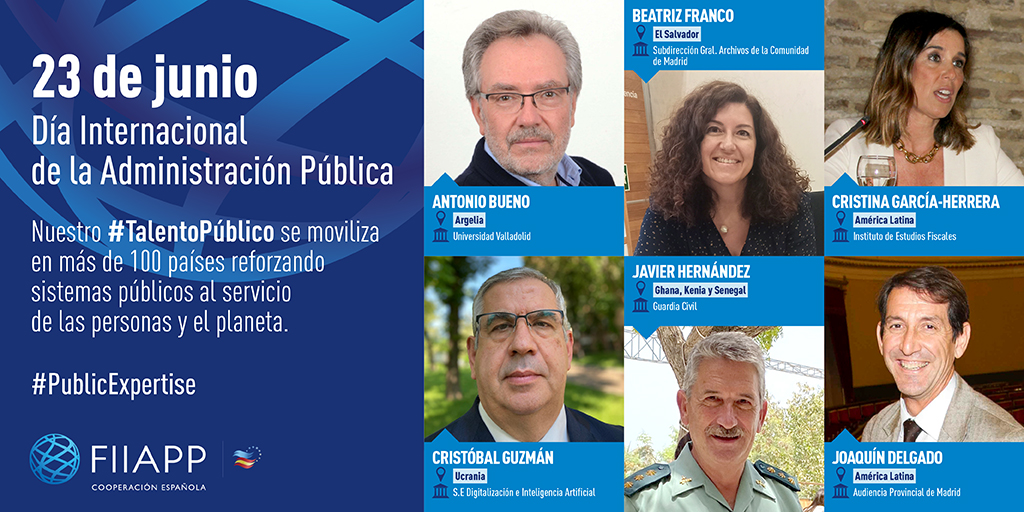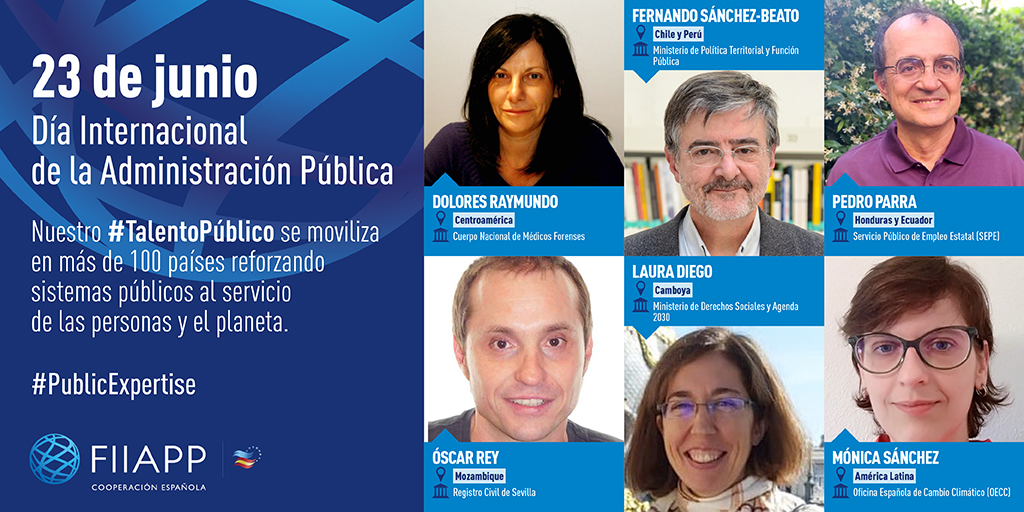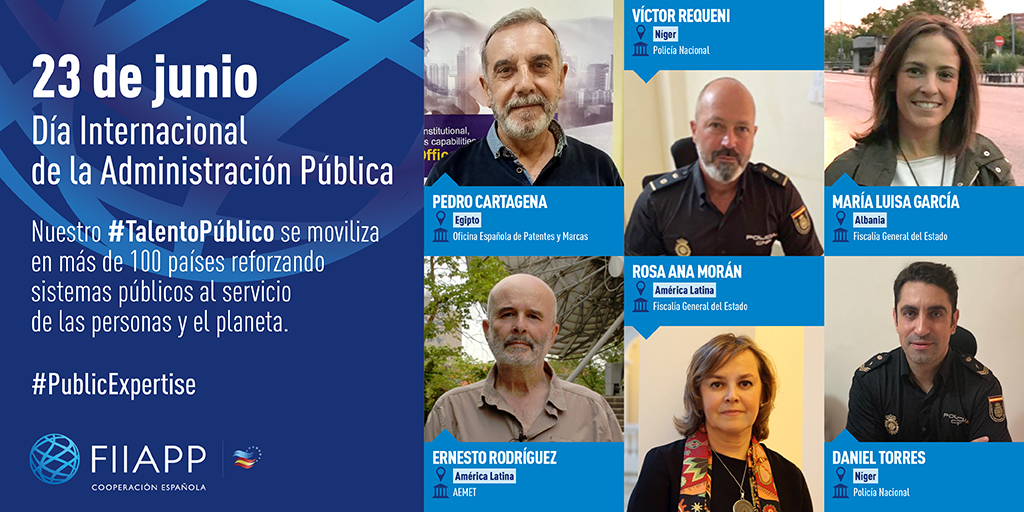-
21 June 2021
Category : Reportage
Mobilising Spanish #PublicExpertise abroad
Every year, hundreds of prosecutors, judges, teachers, police officers and meteorologists, among others, set out from the Spanish public administrative bodies on missions to collaborate with the institutions in other countries on drawing up laws or public policies. In the last year, FIIAPP has mobilised over 700 professionals from the public sector to take the knowledge and experience held by Spanish public administrative bodies abroad.

A regional network offering legal assistance to migrants, refugees and asylum seekers from Latin America. A policy to promote the digitalisation of administrations and guarantee cybersecurity in Ukraine. Police training and protocols on how to neutralise terrorist attacks on public spaces in the Sahel. A integrated registration and care system for victims of institutional prison violence in Argentina, Chile and Costa Rica. Meteorological scenarios to mitigate the effects of the climate crisis in Central America.
These are just five examples of the changes promoted through over 70 projects around the world in which FIIAPP has mobilised the Spanish public sector expertise. We build bridges for dialogue with other administrations to generate public policies that benefit people and the planet. On Public Service Day, we focus on the public expertise that makes these cooperation projects possible.

Our public talent abroad
Flexibility, the ability to listen actively, the desire to adapt to other cultures and a commitment to the common good are the main common denominators of the experts who decide to embark on an international mission within the framework of their work: “Going to Algeria on a twinning project has allowed me to strengthen the ties between two academic systems, between two countries and between two peoples” in the words of Antonio Bueno, Professor of Interpretation at the University of Valladolid. Dolores Moreno, Forensic Doctor and former director of the National Institute of Toxicology and Forensic Sciences has seen in Central America “a vocation for public service that united me, beyond all the cultural differences, with my forensic colleagues” in a project to fight organised crime.
Guardia Civil Colonel Javier Hernández highlights what he has been learned from the Senegalese, Ghanaian and Kenyan anti-terrorism gendarmeries: “It is always possible to do things differently. Each country has its ways, rhythms, customs and influences. We have to be open to them, adapting our procedures to the circumstances, seeking collaboration without imposing, generating trust and establishing ties that allow our collaboration to continue”. In the same vein, María Luisa Iglesias, a prosecutor who is working on a project relating to criminal and financial investigations in Albania, says: “I am learning that there is no single way of doing things, accepting what is different and bringing it back to public service in Spain.”

Mónica Sánchez-Bajo from the Spanish Office for Climate Change has been able to share the Spanish experience in public policies for adaptation to climate change with other Latin American countries “in a much-needed technical exchange to address the most global challenge the planet currently faces.”
These are just some examples that reflect the dedication and commitment of the people who are part of Spain’s Public Administration. FIIAPP will continue working to mobilise public expetise through public technical cooperation, sharing knowledge and promoting public policies for people and the planet.
The views and opinions expressed in this blog are the sole responsibility of the person who write them.




